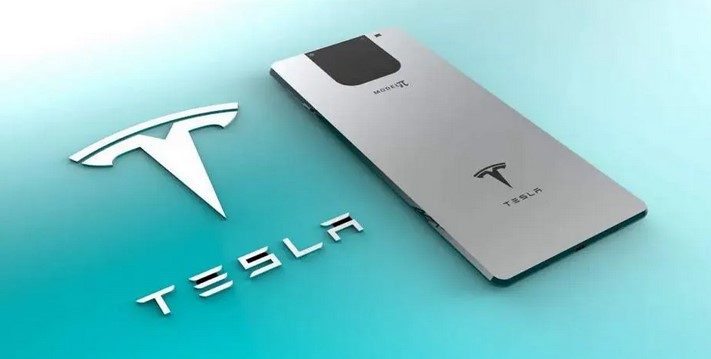Monthly Archives: March 2025
Tesla Smartphones: Are Elon Musk’s Tech Ambitions Expanding?

Source : https://themodems.com
Elon Musk has become synonymous with groundbreaking innovation, pushing the boundaries of technology through companies like Tesla, SpaceX, Neuralink, and The Boring Company. His ventures have revolutionized the automotive, aerospace, and energy industries, but his ambitions may not stop there. Rumors have been circulating about the possibility of Tesla smartphones, a product that could change the mobile phone landscape. The prospect of a Tesla-branded smartphone could signal Musk’s next big leap into the world of consumer electronics. In this article, we will examine whether Tesla smartphones are a real possibility and what they could mean for the tech industry.
The Vision of Elon Musk: From Cars to Phones
Elon Musk’s vision has always been about pushing the limits of technology to improve lives and challenge established industries. Tesla, his electric car company, revolutionized the automotive world, while SpaceX aims to take humanity to other planets. His other ventures, like Neuralink and The Boring Company, further showcase his drive to innovate and address global challenges in new ways. The idea of Tesla smartphones is not as far-fetched as it might initially seem. Musk has shown an interest in creating products that integrate seamlessly with Tesla vehicles and the broader ecosystem of his tech ventures.
Tesla’s Ecosystem: A Foundation for Smartphones
Tesla has already established an integrated ecosystem around its vehicles, with over-the-air software updates, smartphone apps for vehicle control, and a highly specialized operating system. The transition to smartphones could be a natural extension of Musk’s broader vision to unify all of his technologies. A Tesla smartphone would likely offer seamless integration with Tesla vehicles and provide new features tailored for electric car owners, such as remote vehicle diagnostics, driving automation controls, and access to Tesla’s charging network.
Further, Musk has always focused on building a loyal customer base, and offering a smartphone as part of the Tesla experience could deepen consumer engagement. Imagine a Tesla phone that allows owners to monitor the performance of their car, interact with the vehicle’s AI system, or receive real-time updates on their car’s battery status. Additionally, Tesla smartphones could work with Tesla’s home energy products, like solar panels and the Powerwall, creating a fully integrated smart home experience.
The Market Opportunity: A New Player in the Mobile Industry?
The smartphone market is dominated by companies like Apple, Samsung, and Google, which have established themselves as the go-to brands for high-quality mobile devices. However, the market is ripe for disruption. As more consumers look for products that offer seamless integration with their smart devices and vehicles, a Tesla smartphone could meet a growing demand for cohesive technology solutions.
The Challenges of Entering a Saturated Market
Despite the potential for success, entering the competitive smartphone market would not be without challenges. Tesla would need to compete with established giants like Apple, which has a massive global market share and a loyal customer base. Additionally, Android-based devices from companies like Samsung, OnePlus, and Google provide consumers with a broad range of options.
A Tesla smartphone would need to offer something unique to stand out from the competition. It would need to integrate smoothly with the Tesla ecosystem, offering features that appeal not just to car owners but to tech enthusiasts in general. The design and functionality of the phone would be critical factors in its success. Tesla would need to create a product that is not only technologically advanced but also aesthetically appealing, as Apple’s design philosophy has shown the importance of this in the smartphone space.
Moreover, entering the smartphone market would require significant investment in research and development, as well as the creation of a reliable supply chain and distribution network. Tesla would need to address these operational challenges while maintaining its commitment to high-quality, cutting-edge products.
Tesla Smartphones: What Could They Offer?
If Tesla were to launch a smartphone, it would likely leverage its expertise in design, software, and hardware integration to produce a highly specialized device. Here are a few features Tesla smartphones could offer:
- Integration with Tesla Vehicles: As mentioned earlier, a key feature would be the deep integration with Tesla vehicles. Drivers could use the phone to monitor vehicle status, control autonomous driving features, or even initiate remote vehicle diagnostics.
- Seamless Software Ecosystem: Tesla already has an advanced in-car operating system that could be extended to its smartphone. With a unified operating system, Tesla could offer a unique user experience that is tailored to their existing products, including cars, energy systems, and more.
- Solar Charging Capabilities: As part of Tesla’s commitment to sustainable energy, a Tesla smartphone could feature solar-powered charging capabilities, reducing the need for traditional charging methods and offering eco-friendly solutions to users.
- Advanced Artificial Intelligence (AI) Features: Tesla has made significant strides in AI, particularly with its Full Self-Driving (FSD) technology. A Tesla phone might integrate similar AI features, such as voice assistants or personalized content recommendations, that would make the device more intuitive and user-centric.
- Premium Design: With Tesla’s track record for producing sleek, high-performance products, it is likely that the Tesla smartphone would also feature a high-end design with premium materials. The phone would likely appeal to consumers looking for both functionality and aesthetic appeal.
While Tesla smartphones remain speculative for now, there is a growing sense that Elon Musk’s tech ambitions could very well lead to the development of such a device. By leveraging Tesla’s expertise in electric vehicles, energy storage, and AI, a Tesla smartphone could offer a new level of integration and functionality that current smartphones do not provide. However, it would need to overcome the significant challenges of entering a saturated and competitive market. Whether or not Tesla smartphones become a reality, Musk’s track record suggests that the future of tech may hold even more surprises. As Tesla continues to innovate, it’s not far-fetched to think that smartphones could be a part of Musk’s larger technological ecosystem in the near future.
Video Games Don’t Cause Violence Essay: Debunking the Myth

Source : https://miro.medium.com
The relationship between video games and real-world violence has been a subject of heated debate for years. Many people argue that playing violent video games can lead to aggressive behavior and, in extreme cases, real-life violence. However, research and expert opinions consistently debunk this theory, providing compelling evidence that video games don’t cause violence. In this essay, we will explore the psychological, sociological, and scientific perspectives to understand why the claim that video games contribute to violent behavior is a myth.
Understanding the Popular Claim: Video Games and Violence
The idea that video games, especially violent ones, can provoke aggression or violence stems from the assumption that repetitive exposure to violent content in games might desensitize players or encourage them to imitate violent actions. This claim often emerges in the wake of high-profile incidents of mass shootings, where perpetrators are sometimes reported to have been avid gamers. However, it is crucial to separate correlation from causation. Just because a person plays violent video games does not automatically mean they will engage in violent behavior.
The Complexity of Aggressive Behavior
Aggression is a multifaceted trait influenced by various factors, including genetics, upbringing, mental health, social environment, and life experiences. While video games are often placed under scrutiny, studies suggest that these other factors play a far more significant role in determining whether someone exhibits violent tendencies. For example, children growing up in abusive households or facing bullying at school may be more predisposed to aggression than those who are exposed to violent media. Therefore, blaming video games alone oversimplifies the issue and ignores the broader, more complex causes of violence.
Research Findings: Video Games and Aggression
Over the past few decades, numerous studies have attempted to establish a link between video game violence and real-life aggression. However, the results have been far from conclusive. According to a report from the American Psychological Association (APA), a substantial body of research has found only weak connections between playing violent video games and increased aggression. These studies typically focus on short-term effects like heightened arousal or irritability immediately after gameplay. However, these effects are not the same as violent behavior, which is much more complex and influenced by a wide range of factors.
Long-Term Effects: The Myth of Desensitization
One of the primary concerns regarding violent video games is the notion that they can desensitize players to real-world violence. However, studies on this matter have not demonstrated any significant long-term effects. In fact, the APA concluded that the evidence supporting the desensitization theory is not strong enough to draw definitive conclusions. Additionally, many people who engage in video game violence are fully aware that the actions in the game do not reflect real-world morality or consequences.
It is also worth noting that the entertainment industry, including video games, has long faced scrutiny over their potential impact on society. Similar concerns arose in the 1980s with the rise of action-packed arcade games, yet violence rates continued to decline despite these concerns. This historical pattern suggests that video games have little to no lasting effect on societal violence.
Sociological Perspective: Video Games and Social Interaction
Another factor to consider when discussing the impact of video games is the social aspect of gaming. Far from being a solitary activity that fosters aggression, modern gaming often involves significant social interaction. Online multiplayer games, for instance, allow players to collaborate, communicate, and build communities. Studies have shown that such interactions can foster positive social behavior, such as teamwork and problem-solving skills. The experience of cooperation in these settings may actually reduce feelings of isolation and frustration, which are more likely to lead to aggression.
The Influence of Family, Peer Groups, and Environment
Rather than video games themselves, the environments in which players are raised and their interactions with peers have a far greater influence on behavior. For example, family dynamics, socioeconomic status, and peer relationships often play a significant role in shaping a person’s behavior. If someone has a supportive family and a healthy social life, they are less likely to exhibit violent tendencies, regardless of whether they play violent video games. On the other hand, individuals who experience neglect or struggle with social integration may be more prone to aggression, but this is not necessarily linked to video game content.
Conclusion: Video Games Don’t Cause Violence Essay
In conclusion, the theory that video games cause violence is a myth that has been repeatedly debunked by research and expert opinion. Video games, like any other form of media, can have both positive and negative effects, but they do not inherently lead to violence. Aggressive behavior is the result of a wide array of factors, including genetics, environment, and personal experiences, rather than exposure to violent video game content. As such, it is important to consider the broader context when discussing the potential effects of video games on behavior. A “video games don’t cause violence essay” ultimately points out that the issue of violence is far more complex than it is often portrayed, and placing blame on video games oversimplifies the problem.





